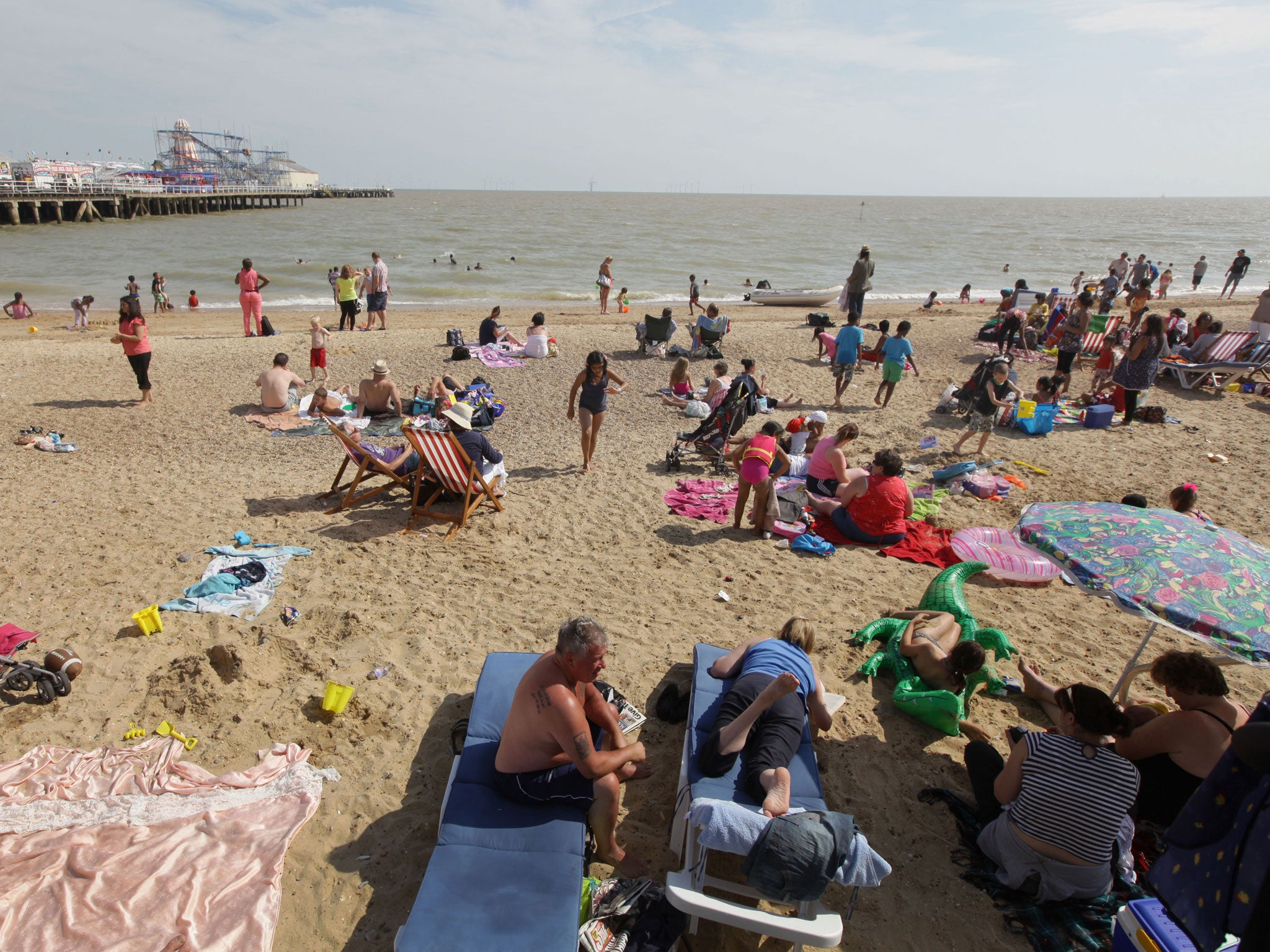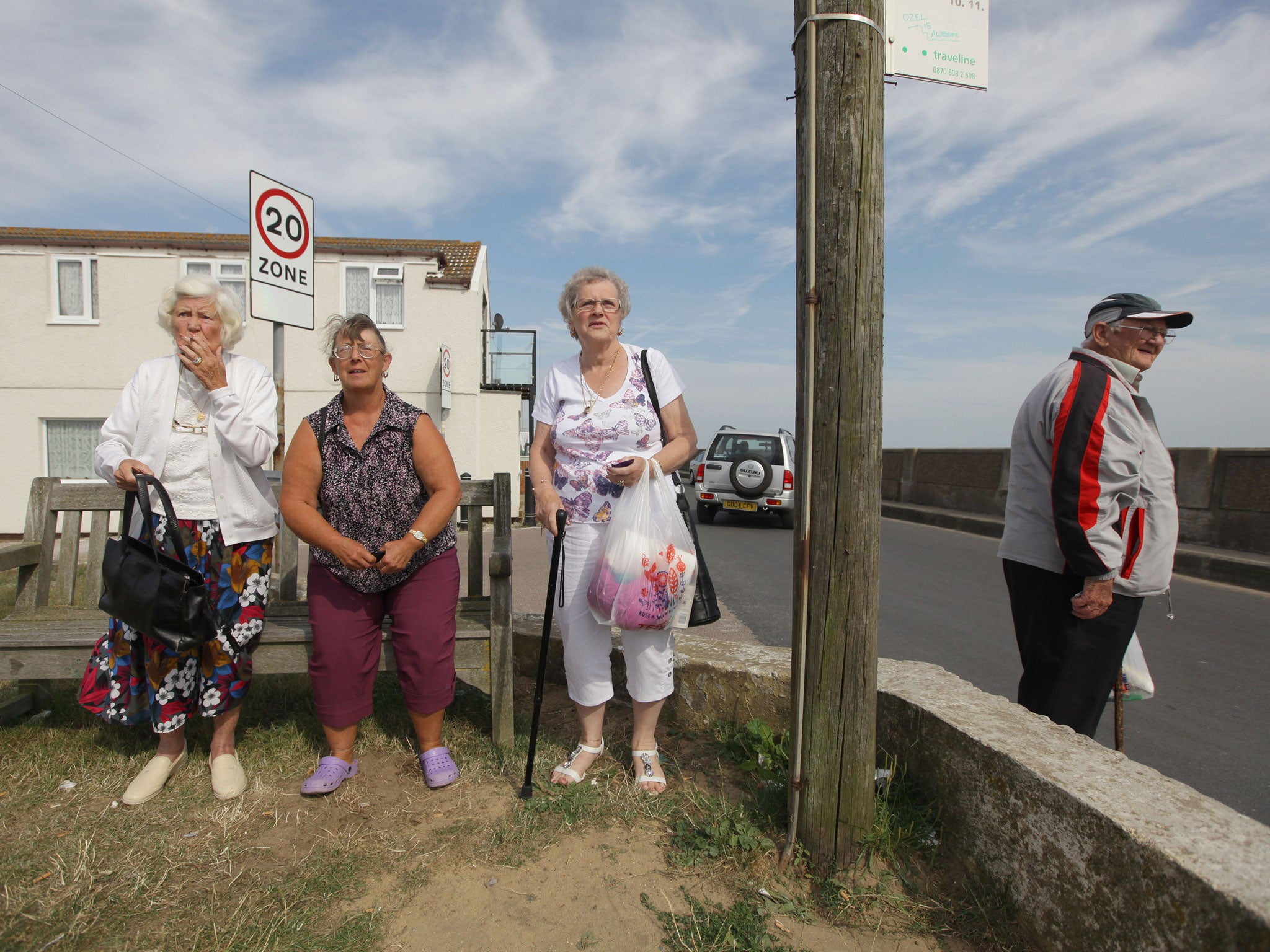We DO like to be beside the seaside! Clacton may be down, but it certainly isn't out
Last week the town dubbed 'Poverty on Sea' was included in a list of deprived seaside resorts. But there are strong signs of a real community spirit
We DO like to be beside the seaside! Clacton may be down, but it certainly isn't out
Show all 4Your support helps us to tell the story
From reproductive rights to climate change to Big Tech, The Independent is on the ground when the story is developing. Whether it's investigating the financials of Elon Musk's pro-Trump PAC or producing our latest documentary, 'The A Word', which shines a light on the American women fighting for reproductive rights, we know how important it is to parse out the facts from the messaging.
At such a critical moment in US history, we need reporters on the ground. Your donation allows us to keep sending journalists to speak to both sides of the story.
The Independent is trusted by Americans across the entire political spectrum. And unlike many other quality news outlets, we choose not to lock Americans out of our reporting and analysis with paywalls. We believe quality journalism should be available to everyone, paid for by those who can afford it.
Your support makes all the difference.In the Jolly Roger restaurant at the end of Clacton Pier, Jane Smith has been serving cream teas and jacket potatoes to holidaymakers for 32 years. Between banter with customers, she says that, although the weather is good now, it won't make up for business lost to the spring rain. "Not after losing Easter and Whitsun – or the spring bank holiday as they call it now," she says. "Unless there's a miracle, that is, and they stop all the planes from Gatwick."
The loss of the summer trade is more of a blow to the hardy folk of Clacton than being dubbed "Poverty on Sea". It was named in a think-tank report highlighting how seaside towns such as Clacton, Great Yarmouth, Blackpool, Margate and Rhyl in North Wales had become dumping grounds for the unemployed and benefits-dependent.
The report, titled Turning the Tide, makes for grim reading. Clacton's unemployment rate for the population of 55,000 hovers at around 50 per cent. In the central Pier ward, home to many of the town's tourist attractions and formerly its economic dynamo, the rate is 54 per cent – the fifth highest in the country. At the last count, the local authority recorded only 501 job vacancies, while the median household income stands at £13,648, compared with £24,242 nationally.
Many say the situation is compounded by London councils shipping out their problem residents – an issue more acute since the Government introduced the benefits cap, which has begun to price families out of the capital. As one passage in the report puts it, towns such as Clacton have become "veritable dumping grounds for groups such as care-leavers, people with substance abuse problems, those with mental health issues and ex-offenders, for whom placing authorities can easily find low-cost accommodation".
The council leader, Peter Halliday, says that while evidence is still anecdotal, in one month, nine families moved here from Enfield alone – one of four London test boroughs in which the cap was introduced three months early this April. "They came with a payment of £6,000 and were told to move down to Tendring and we'll look after them," he says. "That much money can last you a decent amount of time down here."

A short distance from the pier is Jaywick. Here, a small outcrop of pebble-dashed and clapboard beach huts built in the 1930s as temporary chalets cling stubbornly to the shoreline. The sea view that originally sold this "garden village" to Londoners arriving by steamboat at the end of Clacton Pier has since been blocked by a thick concrete sea defence wall. A flood in 1954 killed 37 people. Since then, by some residents' reckoning, the local authority has either tried to sweep the area under the carpet or wipe it off the map for good.
Tendring was recently identified as the most deprived ward in England, and residents have few good words for the local council, which has been blamed for most problems. At the Jaywick Resource Centre, bingo club is finishing up, and the elderly ladies are making way for the line dancers. Walls are decorated with photographs of Jaywick in its heyday, collected by the local history group. Dot's kiosk, the market and the Mermaid bar are all now boarded up. The roads, which speak of unrealised utopia with such names as Sea Shell Way, remain unpaved and potholed. But over the sea defence wall, the beach is still there.
"It used to be better sand in the old days – that soft, smooth sand," says Jacky Steers, a resident since 1986, who works at the centre. With the beach now punctuated with a variety of grasses, planted to save it from being washed away, residents proudly boast it can still give any beach in the south a run for its money.
"We've had rumours they'd build a marina down here. Then there was talk there was going to be a pier – and then they decided they needed a master plan," says Ms Steers. "In the paper, it always claims we had this much and that much money spent on it. But if you look back over the years, it's all just gone on consultants.

"Really, the issue is visual," she continues, looking over the wall to a single family who have the beach to themselves as the sun sets. She's right: beneath the usual signs of modern poverty there's a community here that has withstood a great deal, and ended up, for it all, with a social fabric that is well worn but all the stronger for it. Clacton may be down, but it certainly isn't out.
Subscribe to Independent Premium to bookmark this article
Want to bookmark your favourite articles and stories to read or reference later? Start your Independent Premium subscription today.
Join our commenting forum
Join thought-provoking conversations, follow other Independent readers and see their replies
Comments